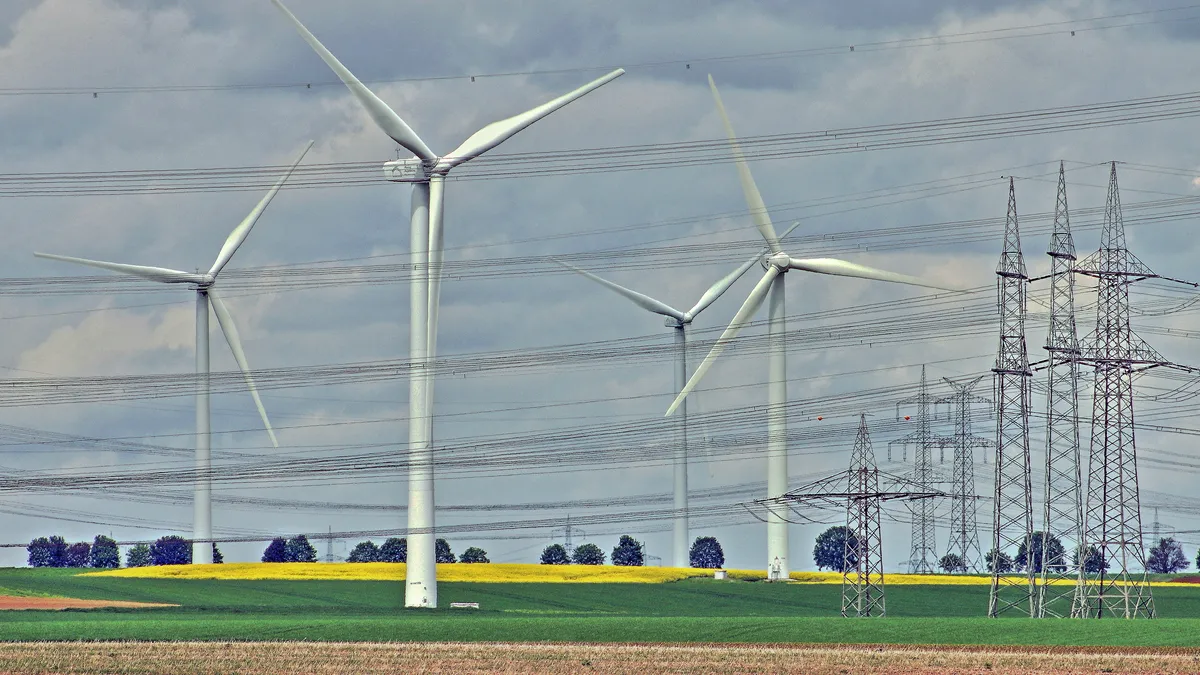Dive Brief:
-
The Iowa Supreme Court on Friday halted a law that gives incumbent utilities a right-of-first-refusal for building transmission lines in the state, saying LS Power would likely win its argument in an ongoing lower court case that the law violates the Iowa Constitution.
-
The temporary injunction affects five transmission projects totaling about $2.64 billion that ITC Midwest, MidAmerican Energy and Cedar Falls Utilities intend to build in Iowa. The projects are part of the Midcontinent Independent System Operator’s Long Range Transmission Planning Tranche 1 projects, approved last year.
-
The ROFR law was “quintessentially crony capitalism,” and would lead to higher costs for ratepayers, the Iowa Supreme Court said. It remanded the case to a district court to consider LS Power’s arguments.
Dive Insight:
The legal dispute over Iowa’s ROFR law is part of a broader fight at the federal and state levels over who should be able to build and own regional transmission projects that will be needed to support grid reliability and the shift toward renewable energy.
The Federal Energy Regulatory Commission has proposed giving incumbent utilities the right to build regional transmission if they partner with other utilities on the projects and lawmakers in several states this year have been considering bills that would give their incumbent utilities transmission ROFRs.
Iowa passed ROFR legislation in June 2020 giving incumbent utilities first dibs on building MISO-approved projects. The utilities must notify the Iowa Utilities Board that they plan to build the projects within 90 days of their approval.
The ROFR bill twice failed to pass the Iowa Legislature, most recently in 2020 when it died in a House subcommittee, according to the court’s decision. However, on the last day of the legislative session, it was attached to an appropriations bill that included various unrelated measures. The ROFR passed the Senate four hours after it was introduced and after it was mischaracterized by its sponsor, according to the court.
“We are not surprised the ROFR lacked enough votes to pass without logrolling,” the court said. “The provision is quintessentially crony capitalism. This rent-seeking, protectionist legislation is anticompetitive. Common sense tells us that competitive bidding will lower the cost of upgrading Iowa’s electric grid and that eliminating competition will enable the incumbent to command higher prices for both construction and maintenance.”
LS Power sued in 2020 to overturn the ROFR legislation. The Iowa Court of Appeals in July upheld a lower court decision that said LS Power lacked standing to bring its suit because it hadn’t yet been harmed by the ROFR law.
The Iowa Supreme Court reversed that finding, saying LS Power was undermined when the ROFR bill was enacted.
“A business that is excluded from competing for new projects is injured upon its exclusion,” the court said, adding that a “specific, live project” isn’t required to establish standing.
In October, ITC, MidAmerican and CFU told the utilities board they planned to build and own five projects included in MISO’s latest transmission expansion plan.
Further, the court agreed with LS Power’s arguments that the ROFR legislation was passed in a way that violates the single-subject and title provisions of the Iowa Constitution. The court put the law on hold while the district court considers the case on remand.
The title of the appropriations bill – An Act relating to state and local finances by making appropriations, providing for legal and regulatory responsibilities, providing for other properly related matters and including effective date and retroactive applicability provisions – gives no indication it includes the ROFR, likely in violation of the state Constitution, according to the court.
Also, the legislation appears likely to violate the state Constitution’s requirement that a bill include only a single subject, the court said.
In another factor that justifies staying the ROFR law, LS Power faces irreparable harm through the loss of opportunity to land multi-million-dollar transmission projects in Iowa, the court said.
MidAmerican Energy is reviewing the decision, Geoff Greenwood, a utility spokesman, said.
MISO is also reviewing the decision to determine its next steps, Brandon Morris, grid operator spokesman, said.
The ROFR ensures that Iowa determines and controls who builds transmission in the state, and provides “certainty, accountability and transparency,” according to Lindsay Clark, an ITC spokeswoman.
Editor’s note: This story has been updated with a comment from ITC.















